Which Kitchen Countertops Are Best: A Comprehensive Guide
Several materials are commonly used for kitchen countertops, such as granite, quartz, marble, laminate, and butcher block. Each of these materials has distinct properties, so deciding which one to use depends on personal needs and preferences.
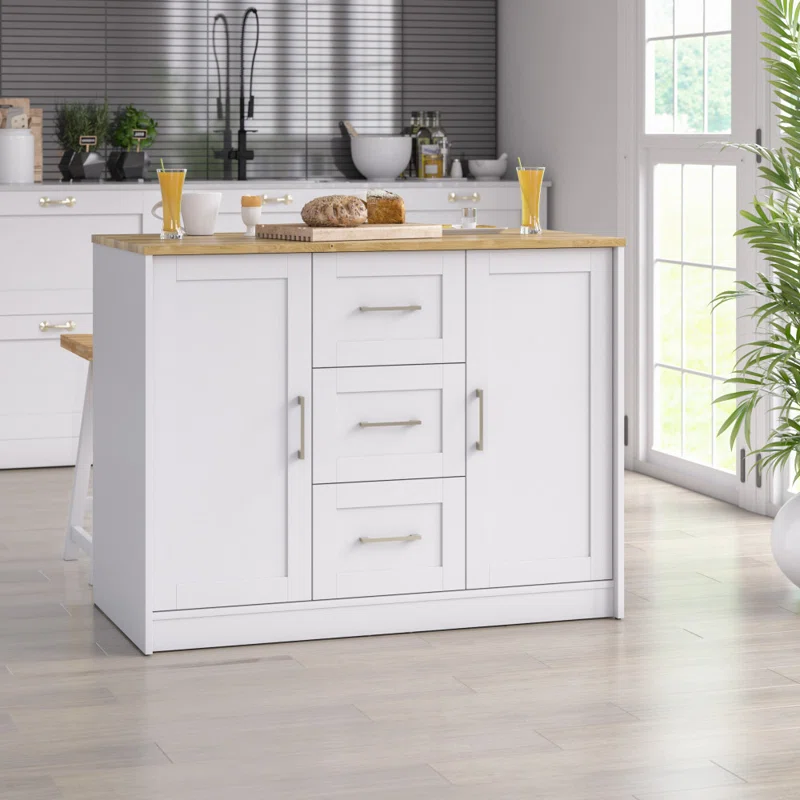

It’s important to note that each material has pros and cons, and what may be suitable for one household may not be ideal for another.
Types of Kitchen Countertops
Choosing a kitchen countertop can be overwhelming due to the numerous options available. Every material has its characteristics, benefits, and drawbacks. Below are some of the most commonly used kitchen countertop materials.
Granite
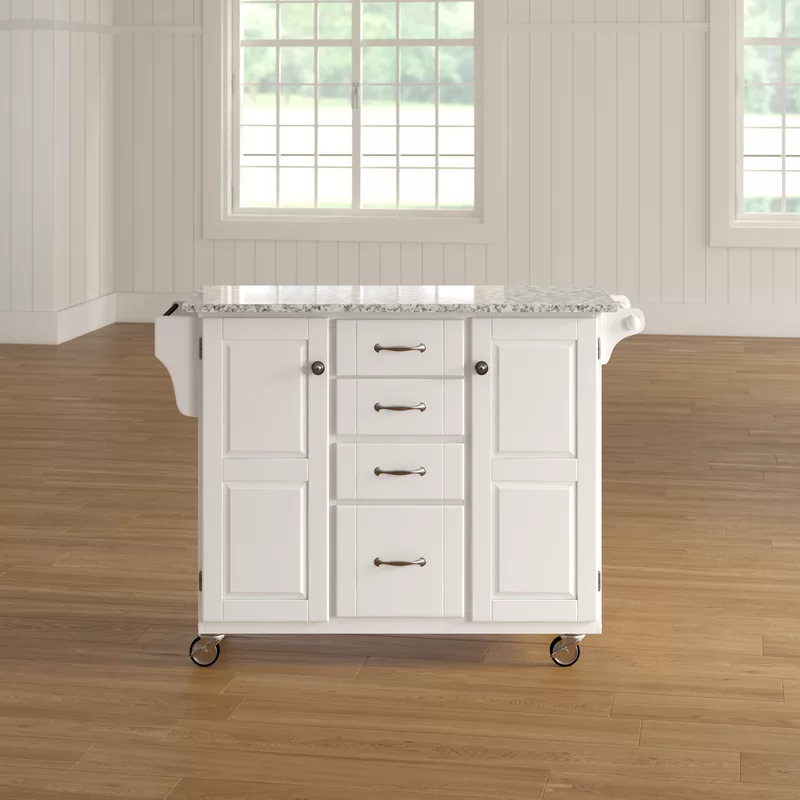

If you’re looking for a durable and heat-resistant natural stone for your kitchen, granite might be a good choice. It comes in various colors and patterns, which can give your kitchen a unique look. However, it can be expensive and needs regular sealing to prevent stains. Here are some pros and cons when deciding whether granite countertops suit you.
| Pros | Cons |
| Durable | Requires regular sealing |
| Scratch-resistant | Can crack or chip |
| Heat-resistant | Expensive |
| Unique patterns and colors | Heavy and difficult to install |
Quartz
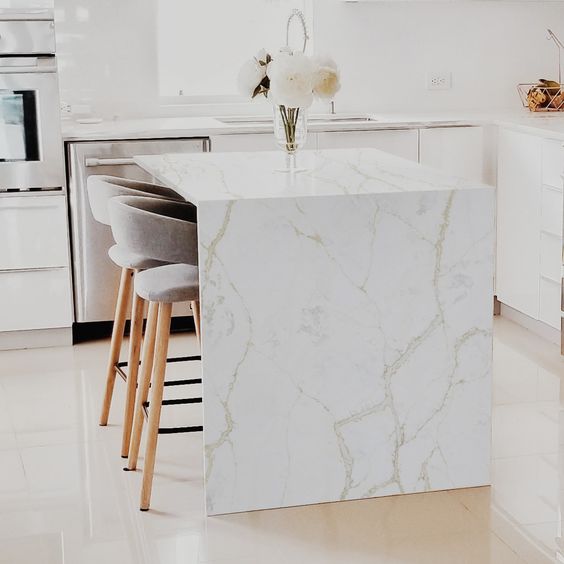

If you’re looking for a durable and low-maintenance countertop, consider quartz. This type of countertop is made from engineered stone and is resistant to scratches, stains, and heat, which makes it ideal for busy kitchens. While quartz countertops come in various colors and patterns, they are more expensive than other materials. Here are some pros and cons to keep in mind when considering quartz countertops.
| Pros | Cons |
| Non-porous and hygienic | Can be expensive |
| Low maintenance | Can discolor over time |
| Scratch-resistant | Not heat-resistant |
| Wide range of colors and patterns | Can chip or crack |
Marble
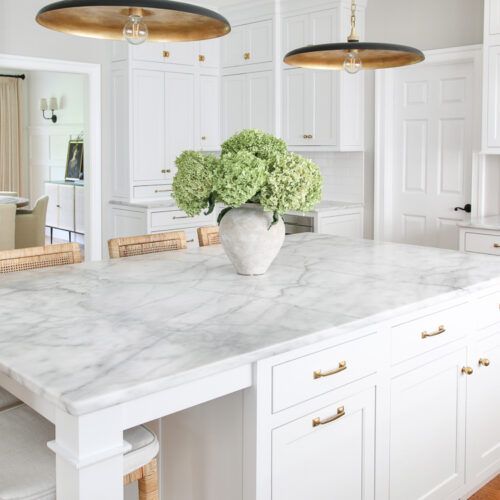

The marble is beautiful but needs occasional sealing to avoid damage. It may last less time than other materials. Here are the pros and cons of marble countertops.
| Pros | Cons |
| Unique and luxurious look | Requires regular sealing |
| Heat-resistant | Can scratch and stain easily |
| Cool to the touch | Expensive |
| Timeless appeal | Not as durable as other options |
Solid Surface
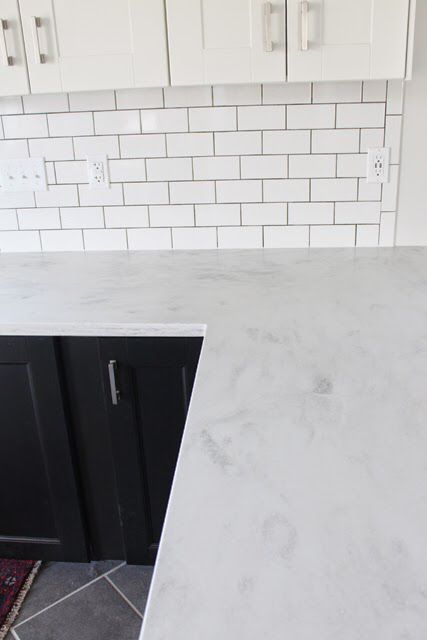

Consider solid surface countertops for a durable, easy-to-clean option miming natural stone. Keep in mind they can be expensive and require professional installation. Weigh the pros and cons before deciding.
| Pros | Cons |
| Non-porous and hygienic | Can scratch and scorch |
| Low maintenance | Not as heat-resistant as other options |
| Can be repaired if damaged | Can be expensive |
| Wide range of colors and patterns | Not as durable as natural stone |
Laminate
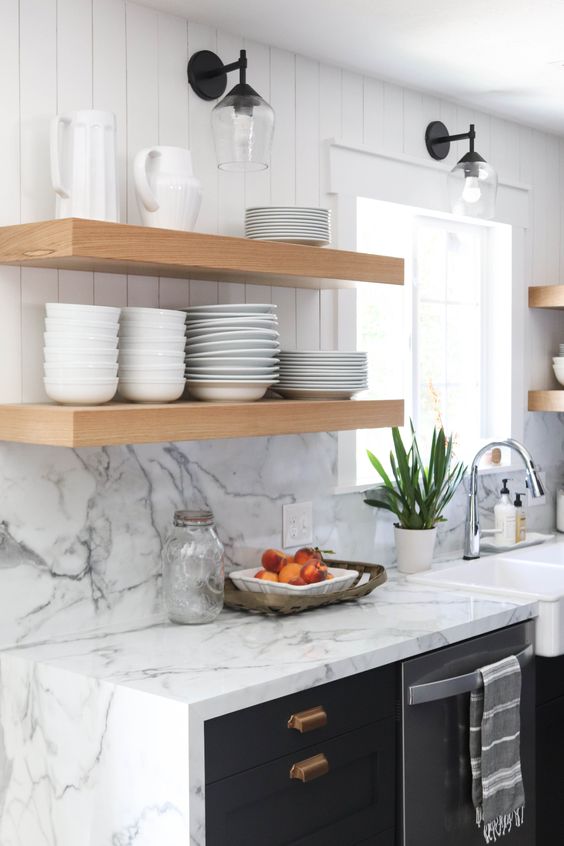

Laminate countertops are affordable, come in many colors and patterns, and are easy to clean, but they may scratch or chip easily and not last as long as other options.
| Pros | Cons |
| Inexpensive | Can be easily damaged |
| Low maintenance | Not as heat-resistant as other options |
| Wide range of colors and patterns | Not as durable as natural stone |
| Easy to install | Seams can be visible |
Concrete
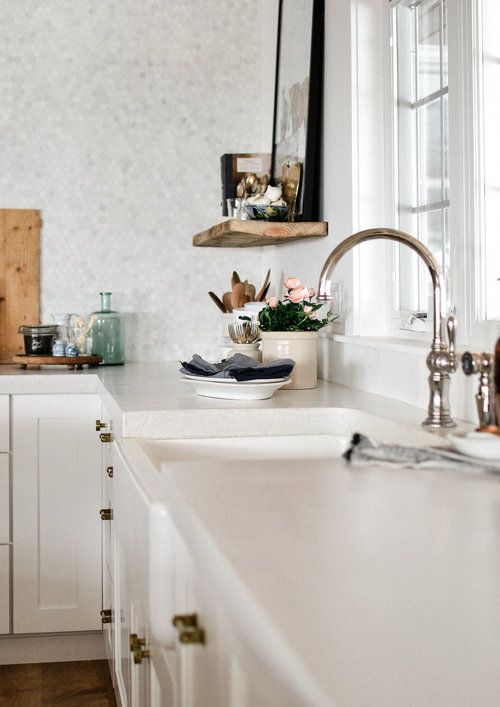

Concrete countertops are a popular choice for modern kitchens. They are durable, heat-resistant, and can be customized to fit any design style, but they can be expensive and require regular sealing to prevent staining and damage. Here are the benefits and drawbacks of concrete countertops:
| Pros | Cons |
| Customizable | Can stain or scratch easily |
| Heat-resistant | Requires regular sealing |
| Durable | Can crack over time |
| Unique and modern look | Can be expensive |
Butcher Block
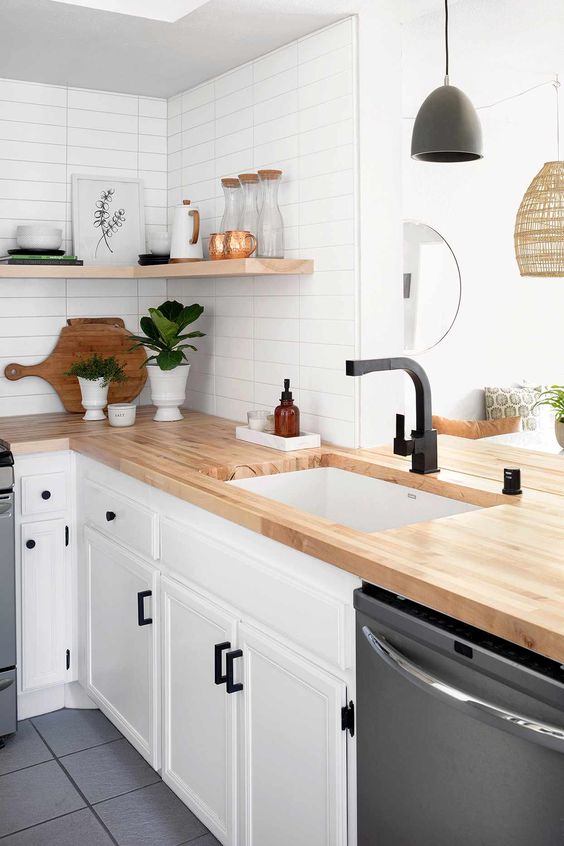

Butcher block countertops are warm, beautiful, and made from wood. They’re durable and easy to clean but can scratch easily and need regular oiling to prevent damage. Therefore, it is prudent to weigh this choice’s benefits and drawbacks before deciding.
| Pros | Cons |
| Warm and natural look | Requires regular oiling |
| Can be sanded and refinished | Can scratch and stain easily |
| Can be less expensive than other options | Not as durable as stone |
| Can be used as a cutting surface | Can warp over time |
Factors to Consider When Choosing a Kitchen Countertop
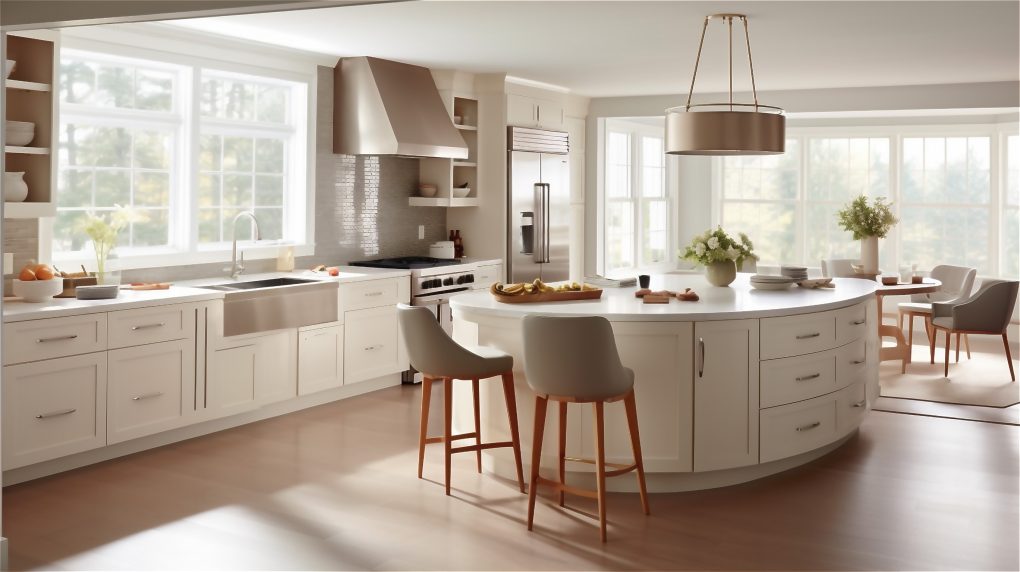

When selecting a kitchen countertop, there are several factors to remember.
Durability
When selecting a kitchen countertop, it is important to prioritize durability. Certain materials are more resilient than others, so choosing a countertop that can withstand daily wear and tear is crucial. Granite, quartz, and concrete are among the most durable options, as they are resistant to scratches, heat, and stains, making them ideal for high-traffic kitchens.
Maintenance
Maintenance is another vital factor to consider when choosing a kitchen countertop. Some materials require more maintenance than others. For example, natural stone countertops like granite and marble require regular sealing to prevent stains. Laminate and solid surface countertops are easier to maintain and require less upkeep. Therefore, choosing a countertop that fits your lifestyle and maintenance preferences is important.
Cost
Cost is also a crucial consideration when choosing a kitchen countertop. Some materials are more expensive than others. Based on experience, granite, and quartz countertops are among the most expensive options, while laminate and solid surface countertops are more affordable. Therefore, it is important to choose a countertop that fits your budget.
Style and Design
Style and design are also crucial factors when choosing a kitchen countertop. Countertops come in a wide range of colors, patterns, and textures. Some materials, like natural stone, have a unique and distinctive look that can add character to your kitchen. Other materials, like laminate, can mimic the look of natural stone at a lower cost. Choosing a countertop that fits your style and complements your kitchen design is important.
